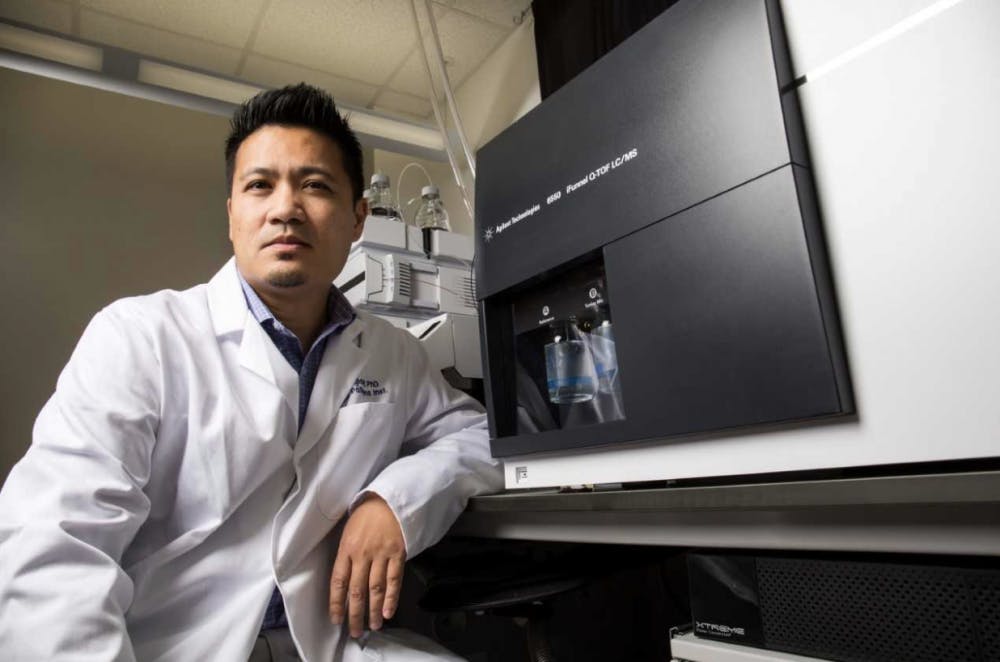A new way to test for malaria could hit the market as soon as 2020.
Last week, Erada Technology Alliance Ltd, a South African technology company, announced the launch of a device developed by Rhoel Dinglasan, a UF associate professor of infectious diseases, and a team of researchers. The device can detect if a person has a parasite that causes malaria — a mosquito-borne infection that results in fever, chills and flu-like symptoms — said Joanna Scott, a spokesperson for Erada.
“I feel that this is a groundbreaking new tool,” Scott said. “Given the number of people that malaria affects globally, anything that can help eliminate and prevent malaria has got to be good for the people, good for the world.”
The Saliva-Based Malaria Asymptomatic and Asexual Rapid Test looks works to detect a protein secreted by one of five parasites that causes malaria in humans in a person’s saliva, Dinglasan said.
It took five years to develop the concept for the device and its prototype, Dinglasan said. During that time, the researchers tested the tool by administering it to people of all ages in countries such as Zambia, Cameroon and Sierra Leone.
“I take the opportunity when I’m there to be influenced by what I see to kind of guide our invention, our innovation,” Dinglasan said.
The tool is not available for public sale. Once the commercialized version of the device is developed, it will have to pend approval from the World Health Organization.
The current method for testing malaria, which was developed in the ‘90s, is a blood test that needs high levels of training to administer and 10 parasites in the blood to detect. The saliva test is less invasive and less stressful for families with children, Dinglasan said.
The saliva-based test can detect malaria with only 0.7 parasites in a person before the infected person even begins to show symptoms, Dinglasan said.
More than $300,000 worth of grants from the Bill & Melinda Gates Foundation, the State of Maryland and the Department of Defense was won to research, test and develop the current version of the testing tool, Dinglasan said.
Overall, the goal is to create an accessible test to easily detect malaria with a lower parasite count in a body, Dinglasan said.
“Premature to say that we’ve made a difference, but we like to think that we are somehow going in that direction,” Dinglasan said.
Contact Samuel Schaffer at sschaffer@alligator.org and follow him on Twitter @sa5mschaffer.
Correction: The article was updated to reflect that the prototype was tested in Zambia, Cameroon and Sierra Leone; it took five years to develop the concept and prototype; the $300,000 was awarded in grants and commercialized version will need approval from the World Health Organization once it is made. The Alligator previously reported differently.
Rhoel Dinglasan, UF associate professor of infectious diseases and leader of the project which developed the Saliva-based Malaria Asymptomatic Asexual Rapid Test device, sits next to one of his agilent mass spectrometers which was used to gather data. Courtesy to The Alligator.






